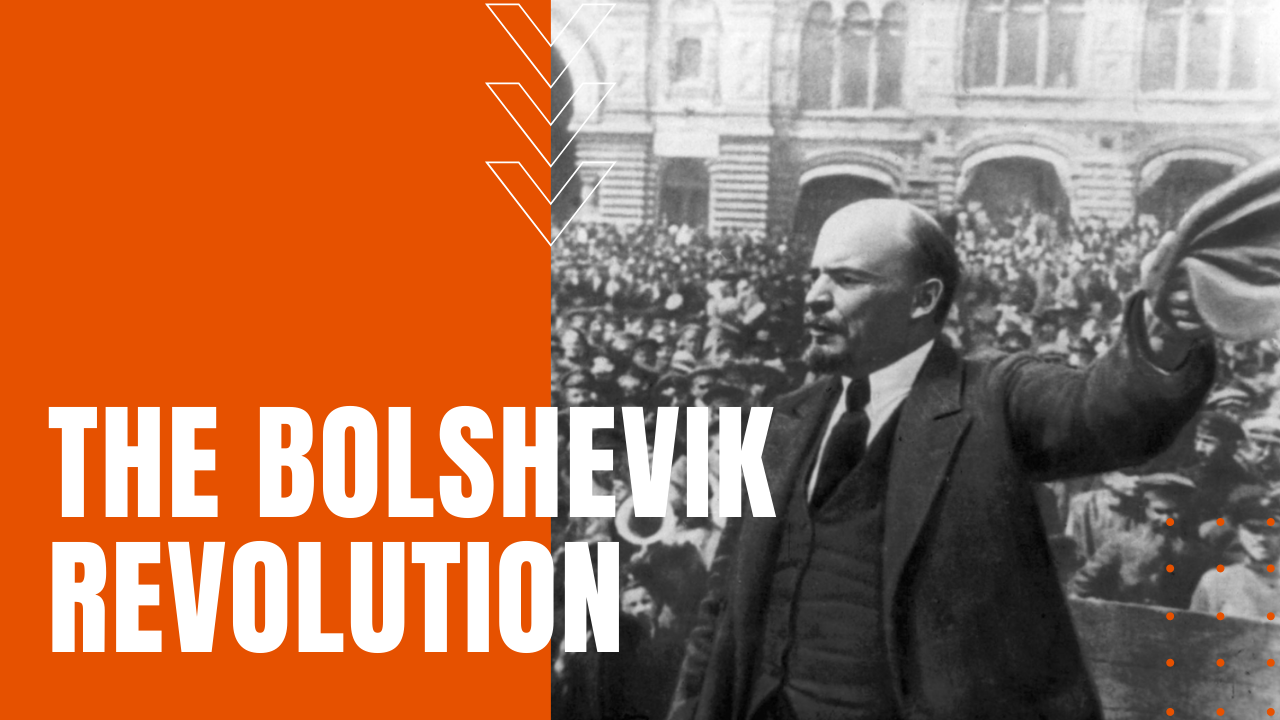Bolshevik Revolution

For average working class Russians, World War I was an unprecedented disaster, witnessing casualties far greater than those sustained by any other nation in any previous war. At the same time, the Russian economy collapsed under the heavy cost of war, and in March of 1917, riots and strikes broke out in Petrograd over the scarcity of food.
Tsar Nicholas II
Demoralized army troops joined the strikers, and on March 15th, impressively-inept Tsar Nicholas the Second was forced to abdicate the thrown, ending nearly 300 years of Romanov rule.
In the aftermath of the February Revolution (known as such because of Russia’s use of the Julian calendar), power was shared between a weak Provisional Government and the soviets, or “councils,” which were intended to represent the interests of the common worker or proletariate.
Vladimir Lenin’s Russian Revolution
In an attempt to undermine Russian war efforts, Germany gave voice to exiled Marxist revolutionary, Vladimir Lenin, and while Lenin’s call for “peace, land and bread” forced him to flee to Finland, his revolutionary message gained popular support among Russian proletariates.
In October of 1917, Lenin secretly returned to Petrograd, and on November 8th, his Bolshevik Red Guard deposed the provisional government and proclaimed soviet rule over Russia, affirming Lenin as the first virtual dictator of the first Marxist state in the world.
His government made peace with Germany, nationalized private industries and redistributed land once owned by aristocratic capitalists, but beginning in 1918, the Bolsheviks had to fight a devastating civil war against tsarist supporters.
USSR Established
In 1920, the tsarists were finally defeated, and in 1922 the Union of Soviet Socialist Republics or USSR was established. Upon Lenin’s death two years later, his body was embalmed and placed in a mausoleum near the Kremlin.
Petrograd was renamed Leningrad in his honor, and after a struggle for succession, fellow revolutionary Joseph Stalin succeeded Lenin as the supreme leader of the Soviet Union. During the course of the revolution, however, Tsar Nicolas the Second and his entire family were executed to ensure the permanency of Marxist rule.
